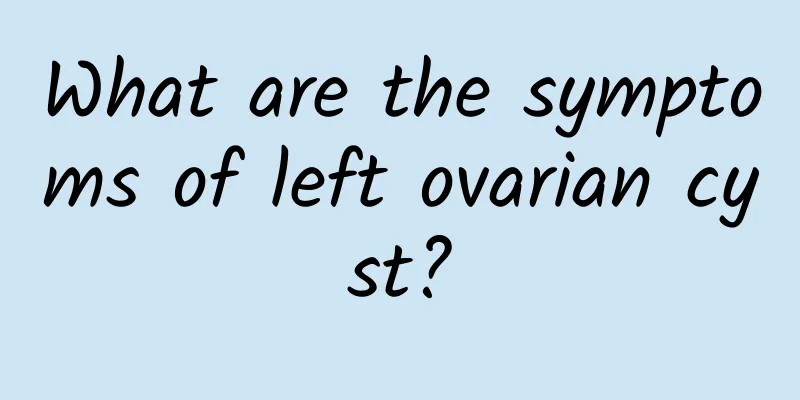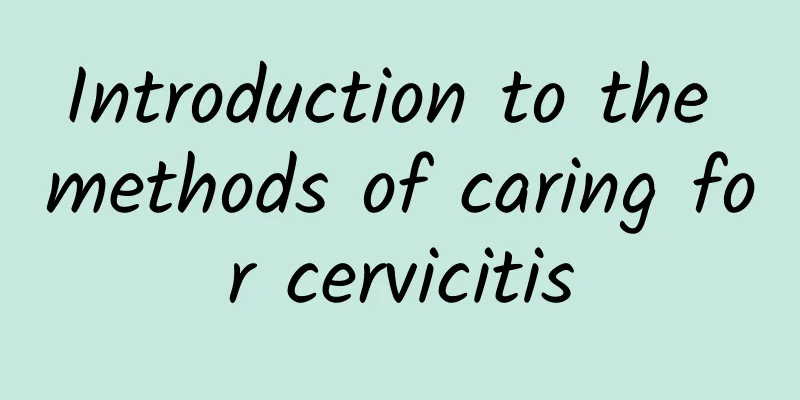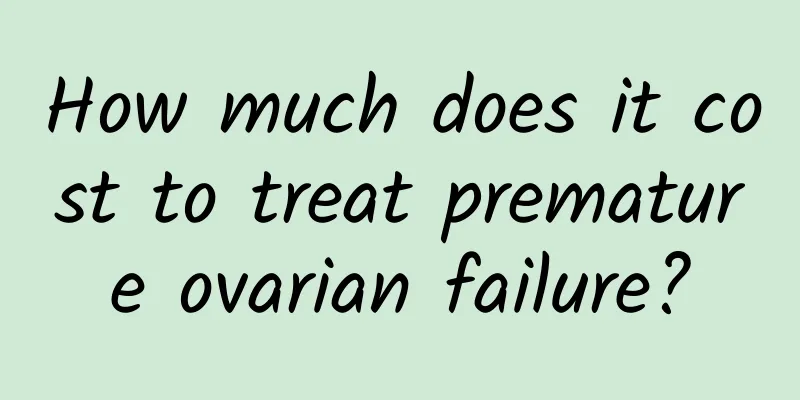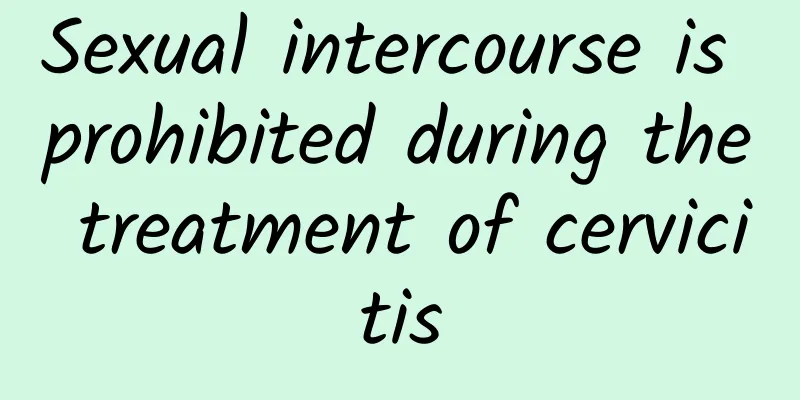What are the symptoms of left ovarian cyst?

|
Symptoms of left ovarian cysts mainly include abdominal pain, irregular menstruation, and a lump in the lower abdomen. Some patients may also experience discomfort such as back pain or difficulty urinating. The severity of symptoms varies depending on the size and nature of the cyst and whether there are complications. You should see a doctor as soon as possible for a clear diagnosis and targeted treatment. 1. Mild symptoms: abdominal distension and discomfort Left ovarian cysts may not show obvious symptoms in the early stage, but as the cyst gradually grows, patients often feel abdominal distension and mild discomfort. This discomfort is mostly located in the left lower abdomen and may worsen as the cyst grows. This situation is more common in functional cysts such as corpus luteum cysts or follicular cysts, and is usually related to hormone fluctuations. If symptoms are mild, regular follow-up and observation may be the best way to manage them. Minor lesions can be relieved by a proper schedule and improved diet, such as increasing fiber intake to relieve bloating. 2. Irregular menstruation and hormonal changes Since the ovaries control the secretion of female reproductive hormones, left ovarian cysts may cause irregular menstruation, such as prolonged menstrual cycles, reduced menstrual flow, or intermittent bleeding. Some patients may also experience symptoms of hormone imbalance, such as breast tenderness and mood swings. This is usually caused by the cyst affecting ovarian function. For these symptoms, your doctor may prescribe oral contraceptives or hormone regulators to help restore normal hormone levels, depending on the nature of the cyst. 3. Severe symptoms: lower abdominal pain and acute complications If the cyst grows rapidly or ruptures or twists internally, it may cause severe pain in the left lower abdomen, accompanied by systemic symptoms such as nausea, vomiting, or fever. This symptom indicates that the cyst may have compressed the ovarian blood flow or surrounding tissues, which is an emergency. It is recommended to seek medical attention immediately for imaging examinations such as ultrasound or CT scans to determine the nature of the cyst and whether emergency surgery is required. Common surgical methods include cystectomy, laparoscopic surgery, or open surgery. 4. Compression symptoms of adjacent organs When the left ovarian cyst grows to a certain size, it may compress the bladder or rectum, causing symptoms such as difficulty urinating, frequent urination, or constipation. Some patients may also experience back pain, which is caused by the cyst compressing the adjacent nerves. For larger cysts, surgery is usually considered to relieve the compression symptoms. Proper rehabilitation after surgery, combined with appropriate exercise to promote pelvic blood circulation, can speed up recovery. Symptoms of left ovarian cysts vary from mild discomfort to severe emergencies. If you experience the above symptoms, you should seek medical attention as soon as possible for detailed examinations, and use imaging and serology such as CA125 levels to clarify the condition and choose appropriate treatment. A healthy diet, regular exercise and regular physical examinations can help prevent the condition from worsening and maintain ovarian health. |
<<: What are the consequences and sequelae of uterine fibroids
>>: What causes endometriosis?
Recommend
The harm that cervical precancerous lesions can cause to the body
The occurrence of cervical precancerous lesions b...
What are the causes of cervicitis in women?
What are the reasons for women to suffer from cer...
Where to treat cervical warts
Sitting and waiting for death is not an option fo...
How to take care of chronic cervicitis in women? This care is conducive to the recovery of patients with chronic cervicitis
Nowadays, chronic cervicitis is usually accompani...
Will long-term cycling affect the health of men's sexual life?
Cycling is a very good leisure sport. In addition...
What are the hazards of cervical erosion in women? Here are some common sense to prevent cervical erosion
Does cervicitis affect fertility? Many women are ...
How to regulate irregular menstruation for women? Tips for irregular menstruation for women
Many women have irregular menstruation in their l...
What are the symptoms and causes of ovarian cyst rupture?
What are the symptoms of a ruptured ovarian cyst?...
How to check for pelvic inflammatory disease
How to check for pelvic inflammatory disease: The...
What dietary considerations should patients with Bartholinitis pay attention to?
What dietary considerations should patients with ...
A study on the absence of obvious blood flow in pelvic inflammatory disease
Pelvic inflammatory disease, a disease that cause...
What to do about habitual miscarriage caused by curettage? There are 4 ways
Because curettage is very harmful to the female b...
How is pelvic inflammatory disease diagnosed?
How is pelvic inflammatory disease diagnosed? Pel...
Causes of amenorrhea and lactation syndrome
Amenorrhea and lactation syndrome is a syndrome i...
New Taipei City sampled 2 items of snack food for school children and found they did not match the label
During the school summer vacation, the New Taipei...









